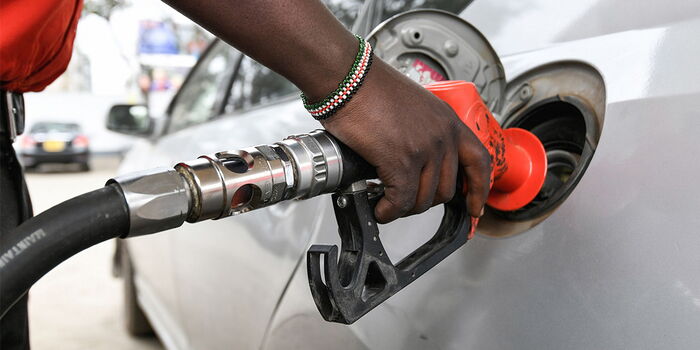EPRA Announces Slight Reduction in Fuel Prices Across the Country
The Energy and Petroleum Regulatory Authority (EPRA) has announced a slight reduction in fuel prices in its latest monthly review. The changes, released on Sunday, September 14, 2025, will take effect from midnight on Monday, September 15, and remain in place until October 14, 2025.
According to the review, the cost of Super Petrol, Diesel, and Kerosene has been reduced by Ksh0.79, Ksh0.11, and Ksh0.80 per litre respectively.
This marks the second consecutive month that motorists in Kenya are experiencing a drop in fuel prices, following a Ksh1 decrease in petrol prices during the previous review covering August to September.
In Nairobi, motorists will now pay Ksh184.52 for a litre of Super Petrol, Ksh171.47 for Diesel, and Ksh154.78 for Kerosene. In Mombasa, prices will be slightly lower, with Super Petrol retailing at Ksh181.24 and Diesel at Ksh168.19. In Thika, the cost of petrol will stand at Ksh184.16 per litre, while Diesel will remain at Ksh171.47.
EPRA clarified in its official statement that the new pricing structure is in line with Section 101(y) of the Petroleum Act 2019, as well as Legal Notice No. 192 of 2022.
The authority further explained that the reviewed prices already factor in the 16 per cent Value Added Tax (VAT), as stipulated under the Finance Act 2023 and the Tax Laws (Amendment) Act of 2024.
The slight reduction was linked to changes in the global oil market and the cost of petroleum imports. Data from EPRA shows that the average landed cost of imported Super Petrol dropped by 0.46 per cent, moving from Ksh96,728 per cubic metre (USD623.71) in July to Ksh96,262 per cubic metre (USD620.84) in August.
Diesel recorded a bigger drop, with costs falling by 3.38 per cent from Ksh98,558 to Ksh95,275 per cubic metre over the same period. Kerosene imports also became cheaper, with the landed cost reducing by 2.93 per cent from Ksh97,303 to Ksh94,438 per cubic metre.
Interestingly, these price adjustments came at a time when global crude prices were edging upward. A bulletin released by the Central Bank of Kenya (CBK) on September 12 noted a 2.5 per cent increase in the price per barrel of Murban crude oil.
The rise was attributed mainly to supply concerns sparked by geopolitical tensions in the Middle East and the ongoing war in Ukraine.
“International oil prices rose, reflecting potential supply disruptions from the conflict in the Middle East and the war in Ukraine, even as concerns over weakening US demand and an expected oversupply from planned output increases by OPEC+ countries remain,” the CBK stated in its bulletin.
Kenya relies heavily on imported petroleum products, making global crude trends and exchange rates key factors in determining local fuel prices.
EPRA reviews fuel prices every month to protect consumers from unfair pricing while ensuring oil marketing companies recover costs linked to international imports and distribution.
Join Government Official WhatsApp Channel To Stay Updated On time
https://whatsapp.com/channel/0029VaWT5gSGufImU8R0DO30


